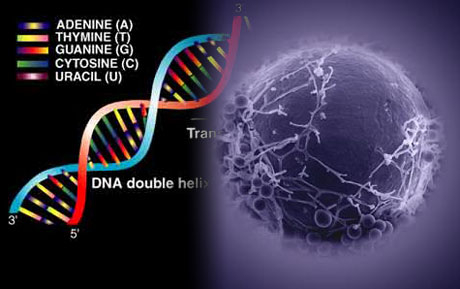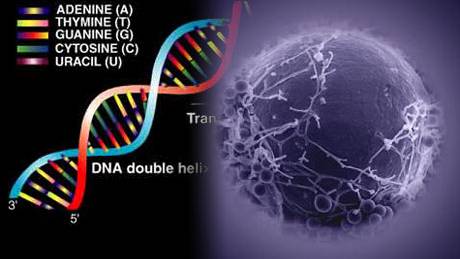First genome transplant turns one species into another
Source: guardian.co.uk

Research is aimed at producing green fuel. Critics warn of terrorists creating new bioweapons.
Scientists have converted an organism into an entirely different species by performing the world's first genome transplant, a breakthrough that paves the way for the creation of synthetic forms of life.
The team, led by Craig Venter, the man who raced to sequence the human genome, wants to build new microbes to produce environmentally friendly fuels.
The group's study, details of which were revealed in the US journal Science yesterday, proves it is possible to transplant a complete set of genetic instructions into an organism, in effect turning it into the same species the DNA was taken from.
The proof of principle experiment solves the first of two big difficulties which have hindered the creation of artificial life. The team, based at Dr Venter's not-for-profit institute in Rockville, Maryland, now hopes to overcome the second hurdle, by designing new genetic codes on computers and transplanting them into organisms to produce new life forms.
The team is focusing on creating micro-organisms which produce green fuels as natural waste products. "One of the goals we have is trying to see if we could design cells to manufacture new types of fuel to break our dependency on oil and coal and try to do something about carbon dioxide," Dr Venter said. "We look forward to trying to have the first fuels from genetically modified and even synthetic organisms, certainly within the decade."
The work is at the cutting edge of synthetic biology, which is rapidly becoming one of the most contentious fields in science. Researchers have developed the tools to recreate the devastating 1918 flu virus, and are working on ways to genetically modify human cells and understand the most fundamental mechanisms of life.
But critics fear the field is progressing too fast for society to grasp. Some are concerned that artificial organisms could escape and damage the environment, or that maverick scientists or terrorist groups could create powerful new bioweapons.
Dr Venter's team commissioned an 18-month study into the bioethics of their research, which gave strong approval but echoed concerns about the dangers.
In the experiment, researchers extracted the whole genetic code from a simple bacterium, Mycoplasma mycoides. They squirted the DNA into a test tube containing a related species, Mycoplasma capricolum. They found that some of the bacteria absorbed the new genome and ditched their own. These microbes grew and behaved exactly like the donor.
Article from: http://www.guardian.co.uk/science/story/0%2C%2C2114428%2C00.html






















